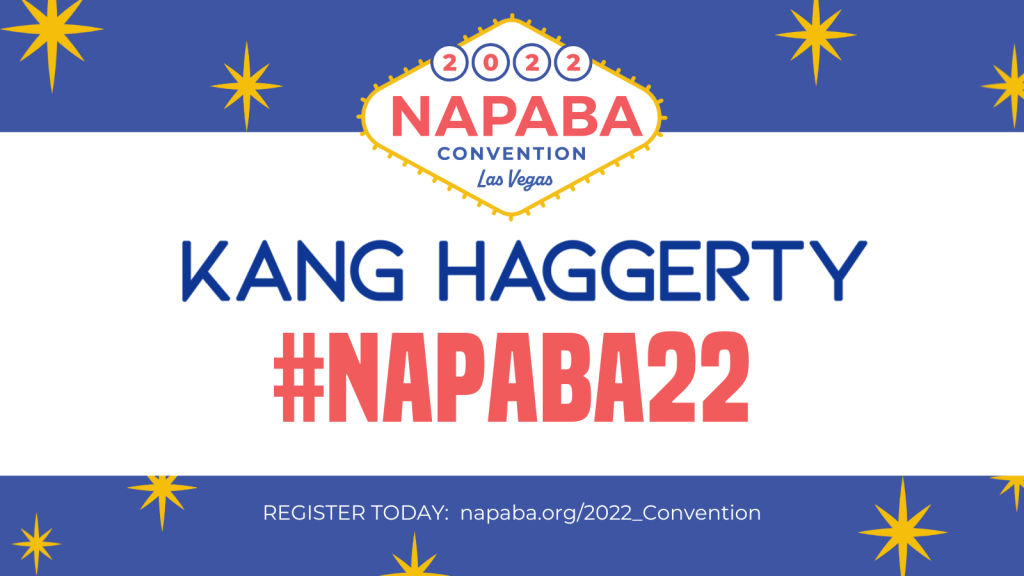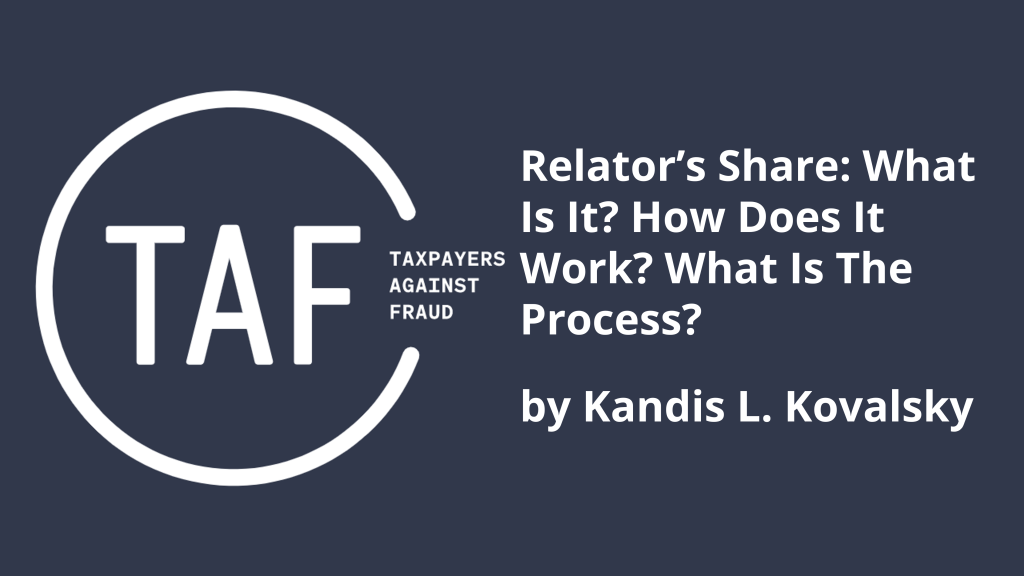As the month of March draws to a close, the Whistleblower Advocates of Kang Haggerty LLC were excited to see many of the valued contributions of women whistleblowers recognized as part of Women’s History Month celebrations. We join with many of our Taxpayer Against Fraud (TAF) colleague law firms in commemorating female whistleblowers who courageously transcend systemic biases to combat fraud. Continue reading ›
Articles Posted in Whistleblower Actions
Law360: Kandis Kovalsky on 6th Circuit Widening of False Claims Act
Kang Haggerty member Kandis L. Kovalsky is asked for her opinion in the March 28, 2023 Law360 analysis by editor Jeff Overley on 6th Circ. Widens FCA Split, Curtails Kickback Law’s Scope.
According to Kovalsky, who represents FCA whistleblowers and is an active member of Taxpayers Against Fraud (TAF), “the Sixth Circuit’s decision … has implications far beyond that case itself” and could have “broad, chilling effects on the FCA’s purpose and reach.”
According to Overley, “The Sixth Circuit delivered a one-two punch to whistleblowers and the U.S. Department of Justice on Tuesday by requiring False Claims Act cases to directly connect kickbacks with health care billing and refusing to view all potentially valuable actions as possible kickbacks.”
Kang Haggerty Attends Annual Qui Tam Conference
Member Edward T. Kang and Associate Ross Wolfe attended the Federal Bar Association Qui Tam Section’s Annual Qui Tam Conference in Washington, DC, from February 16 through February 17. This year’s theme was New Frontiers: Redefining the Landscape of the FCA.
The Qui Tam Section of the Federal Bar Association was started in 2015. It provides education, training, and networking opportunities for attorneys involved with the False Claims Act and other whistleblower statutes. Their award-winning Annual Qui Tam Conference is the section’s premier event. It rallies noteworthy leaders and eminent keynote speakers to foster deep analysis and discussion on contemporary whistleblower-related issues.
Kang Haggerty takes Taxpayers Against Fraud Penny Pledge
Kang Haggerty is pleased to have taken the Taxpayers Against Fraud Penny Pledge to help protect whistleblower laws. The firm is “paying it forward” by pledging to commit a penny for every dollar collected in the practice to help enhance and preserve whistleblower programs into the future.
Taxpayers Against Fraud (TAF) is a non-profit organization committed to defending and empowering individuals who expose fraud in both governmental and financial markets. TAF focuses on rigorously empowering and protecting whistleblowers and educating and supporting attorneys that represent and advocate for these Whistleblowers.
Legal Intelligencer: Fighting Fraud in Health Care Through the False Claims Act in the Third Circuit
The Third Circuit has adopted a more plaintiff/relator friendly interpretation while the Eighth Circuit has reached the opposite conclusion. Until the U.S. Supreme Court settles the circuit split, choice of venue is key for those bringing claims under the Anti-Kickback statute.
In the December 1, 2022 edition of The Legal Intelligencer, Edward T. Kang and Kandis Kovalsky wrote “Fighting Fraud in Health Care Through the False Claims Act in the Third Circuit” Continue reading ›
Legal Intelligencer: Circuit Split on Materiality Standard in FCA Cases and Choosing the Right Venue
A smart and tactical choice of venue can set the stage for victory, and in a False Claims Act case, that choice may make all the difference.
In the November 10, 2022 edition of The Legal Intelligencer, Edward T. Kang wrote “Circuit Split on Materiality Standard in FCA Cases and Choosing the Right Venue” Continue reading ›
Kang Haggerty to Present CLE at 2022 NAPABA Convention
 Kang Haggerty attorneys Edward T. Kang, Kandis L. Kovalsky, and Susan Moon O are attending the National Asian Pacific American Bar Association (NAPABA) 2022 Convention in Las Vegas from November 3 through November 6, 2022.
Kang Haggerty attorneys Edward T. Kang, Kandis L. Kovalsky, and Susan Moon O are attending the National Asian Pacific American Bar Association (NAPABA) 2022 Convention in Las Vegas from November 3 through November 6, 2022.
On Friday, Edward and Kandis are joined by Erika Hiramatsu, Steve Koh, Kolin Tang, and Grace Park to present “How to Whet Uncle Sam’s Whistle: A Guide to Litigating Cases under the False Claims Act.” This program will cover issues that commonly arise in litigating cases brought under the False Claims Act where the government declines to intervene, with a particular focus on healthcare cases. The panelists will offer discussion from the points of view of counsel for Relators, Government, and Defendants. This CLE will also include an explanation of the key provisions of the FCA, recent key cases involving the healthcare industry, and recent policy developments and enforcement trends under the Biden Administration.
The NAPABA Convention is the largest annual gathering of Asian American and Pacific Islander (AAPI) attorneys, judges, law professors, and law students—bringing meaningful insights, networking opportunities, and perspective to the legal community.
Kang Haggerty Attends Taxpayers Against Fraud 22nd Annual Conference
Members Edward T. Kang and Kandis L. Kovalsky, along with Associate Ross Wolfe attended the Taxpayers Against Fraud 22nd Annual Conference in Washington DC from October 26 through October 28, 2022.
Taxpayers Against Fraud (TAF) is a non-profit organization dedicated to both defending and empowering those who expose fraud in both the government and the financial markets. TAF focusing on not only empowering and defending whistleblowers, but also educating the attorneys that help represent these Whistleblowers.
Taxpayers Against Fraud: Relator’s Share: What Is It? How Does It Work? What Is The Process?
 In the October 2022 Edition of Taxpayers Against Fraud (TAF) Newsletter, Kandis Kovalsky wrote “Relator’s Share: What Is It? How Does It Work? What Is The Process?”
In the October 2022 Edition of Taxpayers Against Fraud (TAF) Newsletter, Kandis Kovalsky wrote “Relator’s Share: What Is It? How Does It Work? What Is The Process?”
To incentivize whistleblowers to assist the Government in combatting fraud on the Government and its taxpayers, the False Claims Act, 31 U.S.C. § 3729, et seq. (the “FCA”) ensures that a whistleblower under the FCA (referred to as a “Relator”) receives at least 15 percent of the proceeds recovered by the Government in any action filed under the FCA by a Relator (referred to as a “qui tam” action). A Relator receives 15 percent of the proceeds of an FCA action just by causing a complaint to be filed; 15 percent is the minimum. Continue reading ›
Legal Intelligencer: The Great Pandemic Heist: Attorneys’ Role in Fighting PPP Loan Fraud
In the October 13, 2022 edition of The Legal Intelligencer, Edward T. Kang wrote “The Great Pandemic Heist: Attorneys’ Role in Fighting PPP Loan Fraud”
In the COVID-19 era, there has been a heist of great value, but it has not gone undetected. Prosecutors have called the heist the largest fraud in U.S. history, with the thieves stealing hundreds of billions of dollars in taxpayer money through fraudulently obtained Paycheck Protection Program (PPP) loans.
The “good” thieves are able to abscond with tremendously valuable items while remaining undetected. They take care to cover their tracks, to make sure any witnesses are silenced, and to financially clean the ill-gotten goods as quickly as possible. In the COVID-19 era, there has been a heist of great value, but it has not gone undetected. Prosecutors have called the heist the largest fraud in U.S. history, with the thieves stealing hundreds of billions of dollars in taxpayer money through fraudulently obtained Paycheck Protection Program (PPP) loans. The thieves’ plan to line their pockets was fairly simple: steal the money that the government was doling out to help buoy the economy during the throes of the pandemic. They took advantage of the government’s urgent loan dispersal to those who required immediate help. But the thieves could not resist showing off their looted wealth. They began purchasing flashy and expensive Lamborghinis, beautiful beachfront houses, and spending large amounts in cash. The careless and reckless nature of the heist has proven to be its undoing, and now the U.S. government is coming to take back what was stolen—although they are not acting alone.
 Kang Haggerty News
Kang Haggerty News

